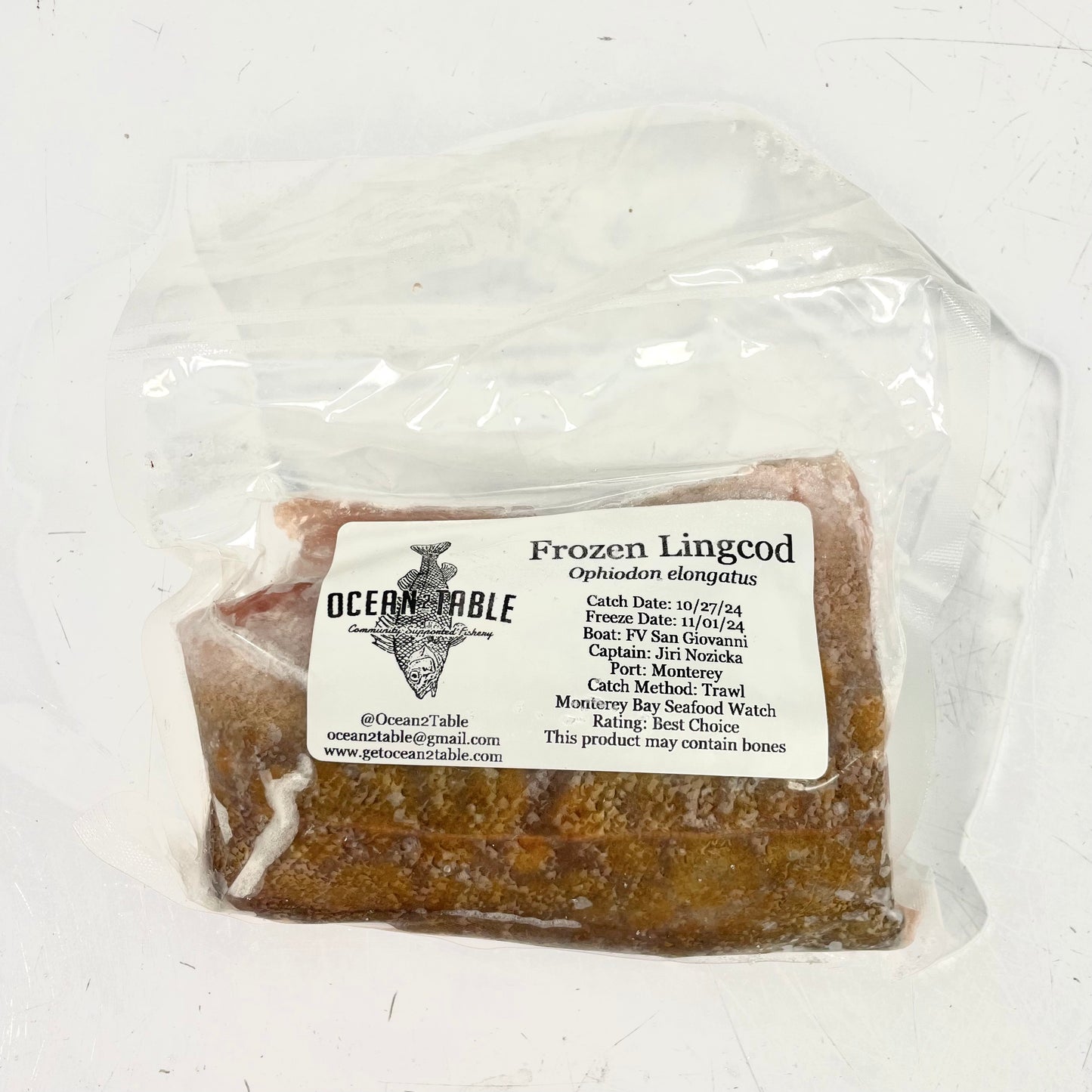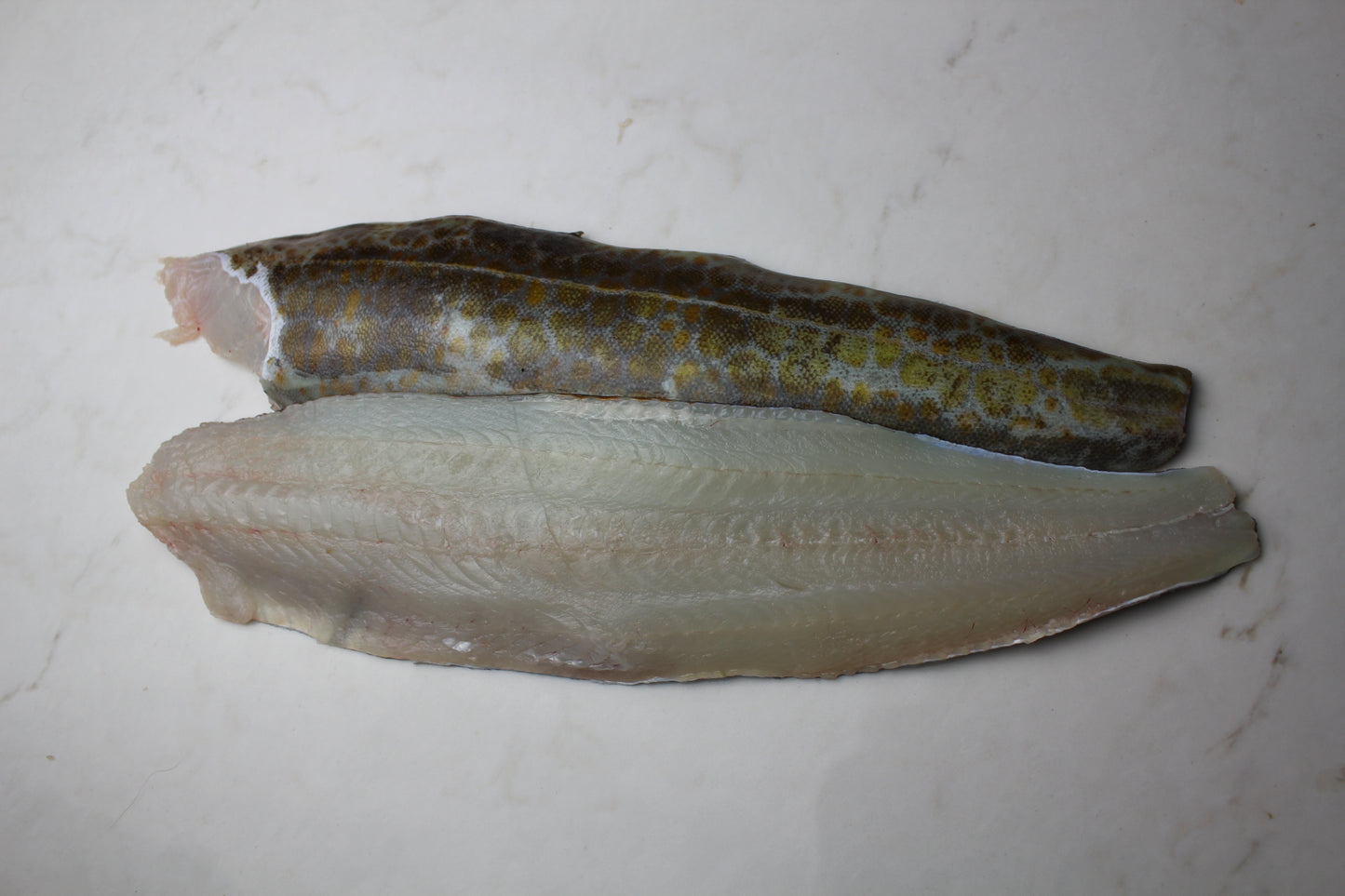Ocean2Table
Frozen Lingcod Fillet
Frozen Lingcod Fillet
Couldn't load pickup availability
1 lb of Lingcod
Frozen & Vac Sealed
Biological Information: Lingcod are unique to the West Coast of North America where they can be found dwelling on rocky reefs and ocean bottoms, ranging from 30-300 feet deep. Lingcod are characterized by their large heads and mouths that hold 18 sharp teeth along with fang like teeth that are used to securely catch their prey. They are ferocious hunters with brown to bluish green coloration that allows them to easily blend into their environment and ambush their prey. During breeding season, the Lingcod migrate closer to shore, males arriving first to establish their ideal breeding territory with females arriving a month later and choosing her male partner based on the nest site. Once the spawning is over the females leave and the males continue to guard the nest for 10 weeks until the eggs hatch. He viciously protects his nest against other species of fish but allows some invertebrates to feed on the eggs. Lingcod are also known for having green flesh (aka. Irish Cod) that turns white upon cooking. There isn’t a clear explanation for the green flesh but they are entirely safe to eat. It is likely a combination of genetics and diet. Lingcod has a white, flakey, lean flesh with a mild flavor. It has a medium-firm texture and large flakes. If the flesh happens to be green, it will disappear upon cooking and turn white.
Sustainability: Lingcod have had a dramatic recovery locally due to the strict fishing regulations that have been imposed. They are caught using a hand operated pole or scottish seine which ensures a limited amount of bycatch and environmental damage. They also have a fast maturity rate with seasonal closures during spawning season. Most of the Lingcod on the local market are caught by large trawlers in Canada and Alaska and imported by truck or airplane. Concerns over by-catch, habitat degradation and quality of fish means that care should be taken when seeking out this species.




